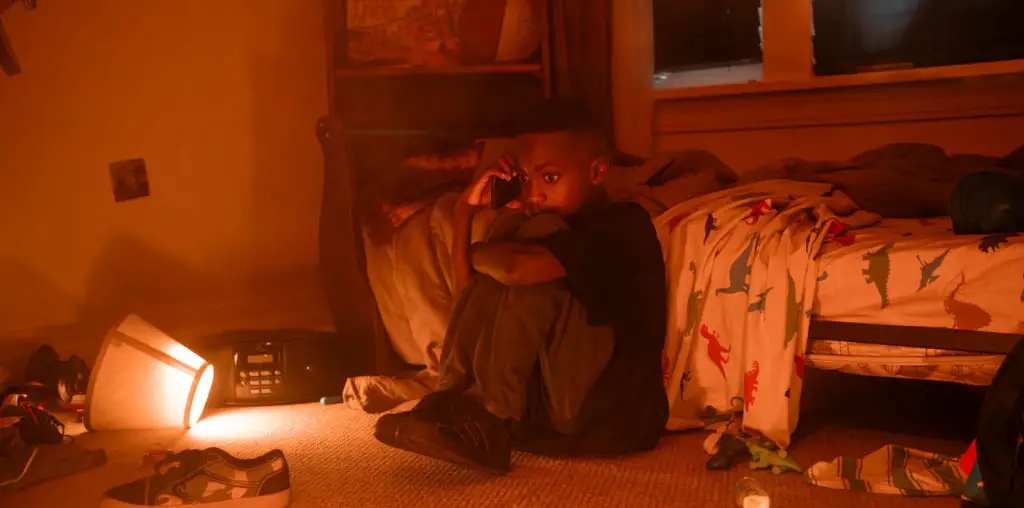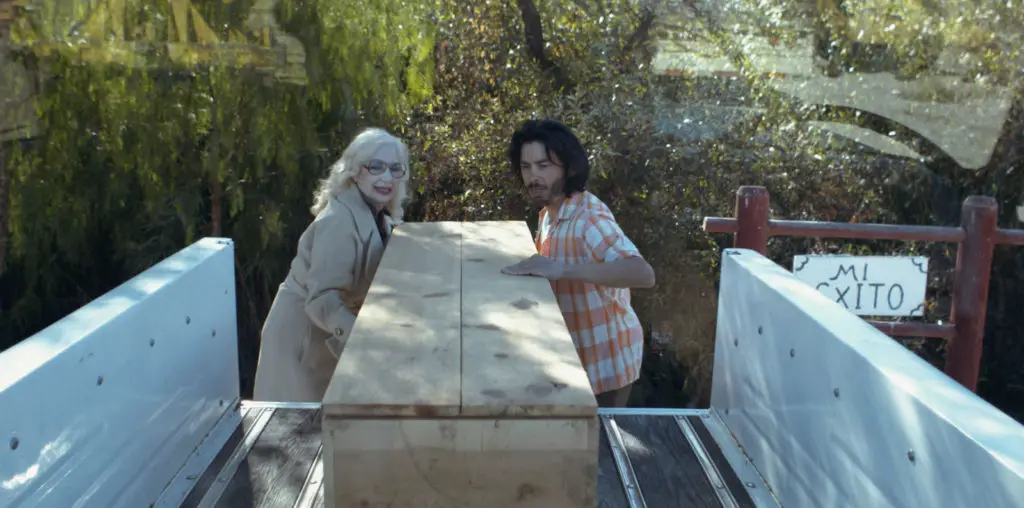
John Q, deals with an issue that is quite sensitive to any parent, that being how far would you go to save the life of your child. Being a father yourself, did you find yourself agreeing with the actions of John Q? Would you have gone to the lengths he did to save the life of one of your kids? ^ It’s easy for me to say, in relation to this film and from where I sit today, that I would not do it– that I don’t agree with what John Q did because it’s a movie. There were actually other things he could have done that the movie tells you earlier on, like when he talks about taking his kid to county hospital. He could have taken him to the county hospital. And what ever happened to that guy who got shot that they brought in? They kind of wheeled him into the back room and you never saw him again. But it’s a movie so who cares? He’s fine, he’s in the other room, he’s reading the paper. But that aside, that’s what’s interesting about this film. It asks you how far would you go, what would you do? I have four children and if I had the same circumstances as John Q what would I do? Any parent, any father would say he’s going to do whatever it takes for his child to live. I don’t think what he did is heroic– I wouldn’t even use the word hero. I think it’s courageous to be willing to take his own life. He’s a father that loves his child and whose back is against the wall. I can remember when I was younger, just starving cause I didn’t have anything to eat, thinking ‘man, I need to go steal something. I need to do something,’ but I couldn’t do it, or I didn’t do it. And I needed the money so bad. But what do you do in those situations? That’s what’s interesting about the movie. What would you do? What would anyone do?
Could you relate at all to Anne Heche’s character as the hospital administrator who turns your son away from the care he needs because of the $250,000 price tag? Can you comprehend how someone could put a price on your child’s life? ^ I think that happens. Not that this is the same thing, but when my first child was born we paid all this money to the hospital to get a special room and we kind of got to the hospital at some odd hour. They ended up putting us in this community room, whatever it was, and I went bananas. Everyone just seemed so calm and nonchalant. The nurses — the people there — they deliver 900 kids a week, so they see that when you come in it’s the most important thing in the world to you. But just because it was the most important thing in my life doesn’t mean it’s the most important thing in their lives.
How exactly did you prepare for your role in John Q? Even though you have played a variety of challenging roles during your career, from Malcolm X to Rubin Carter, the part of John Q seems to be one of the most emotionally draining roles you have taken. ^ Well, it’s acting. You don’t have to kill someone to play a murderer. It’s acting, it’s make-believe. One of the handles though, the way in for me, was that John worked in a factory. The one that we used in the film, I went to work there. I went there, met the people, got a job and learned to do what it was you see me doing in the film. I just hung around. I worked in factories myself and all kinds of odd jobs, so I could relate to that. Getting into John’s world reminded me of being back in that world.
Was it hard for you to go back and do manual labor after living off of simply memorizing lines and playing various characters for two decades? ^ I don’t mind hard work — I remember. I still have my unemployment book.
While preparing for your role, did you research the health care system at all? ^ I didn’t get into that because I was playing a guy who thought he had coverage. So I didn’t want to know and I wasn’t as concerned with the issue no more than John Q was concerned with the issue. He’s only concerned with saving his child’s life. The filmmaker may need to be more concerned with the issue, but I didn’t want to get caught up in the politics of it. I just wanted to be this guy who thought he had insurance. That’s even what I say in the film, ‘Obviously you’ve made a mistake. I’ve got plenty of insurance — I’m covered.’ He really thought he was. Then these things unfolded. It just doesn’t have anything to do with my part. I play a guy who thinks he is covered, not a guy who knows everything about the system. That’s different.
I know that John Q struck an emotional cord for its director, Nick Cassavetes, since his daughter has a heart condition. You’ve worked with so many directors, from Spike Lee to Penny Marshall, how did Cassavetes’ attachment to the story effect both you and the finished project? ^ I think it was his passion. It was the issue for him, not that he tried to ram it down my throat– cause he didn’t. But when you heard his story and what he went through– and more importantly when you saw his daughter come onto the set– it was like, ‘Oh, okay. This is really a personal journey for him. This is not just a movie for him.’ Which for me, in my own little selfish ways, made me know that he was committed and would make this film even stronger. He brought a lot of passion and a lot of tears.
Do you think he could relate to the actions John Q. takes to get his son the care he needs? ^ I would imagine he does. He lived it. Even the little thing I said about my first born, I imagine that if I had gone through what he has gone through I would have an entirely different slant on playing the character and everything.
Your co-star, Daniel E. Smith, said that you two went out to establish a sort of “father and son” bond before shooting began where he beat you at video games. What type of video games did you verse him in? ^ I don’t even play video games! Maybe I got on for a couple of minutes, and I’m sure he could have beat me. He said he beat me in video games? Okay, I’m going to go out there and talk to Daniel. I don’t even know how the play video games. Maybe I played for two seconds and he probably won (laughs). He’s a good kid. He, Kimberly (Elise) and I kind of stuck together like a little family. We even had a family outing to Niagara Falls by pick-up truck.
What made you decide to drive a pick-up truck there? ^ I drove a pick-up truck throughout the whole movie, so when they tried to give me a car I said, ‘no, I want a pick-up truck.’ So we took the truck and drove down. It’s really nice in Niagara Falls– it’s unbelievable. They have casinos, a chapel… it’s a real vacation destination.
Get the rest of the interview in part three of DENZEL WASHINGTON’S TRAINING DAYS ARE OVER>>>


